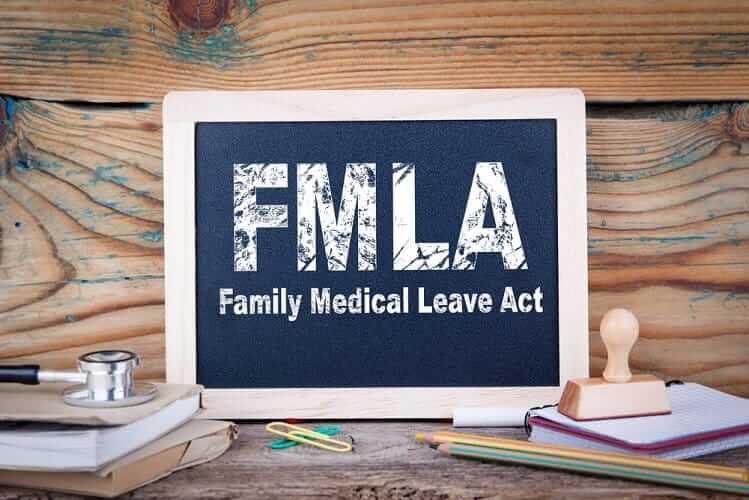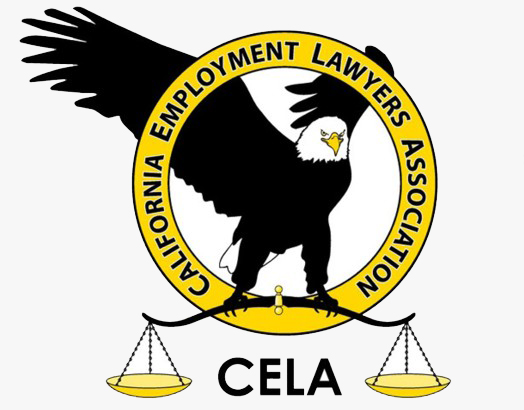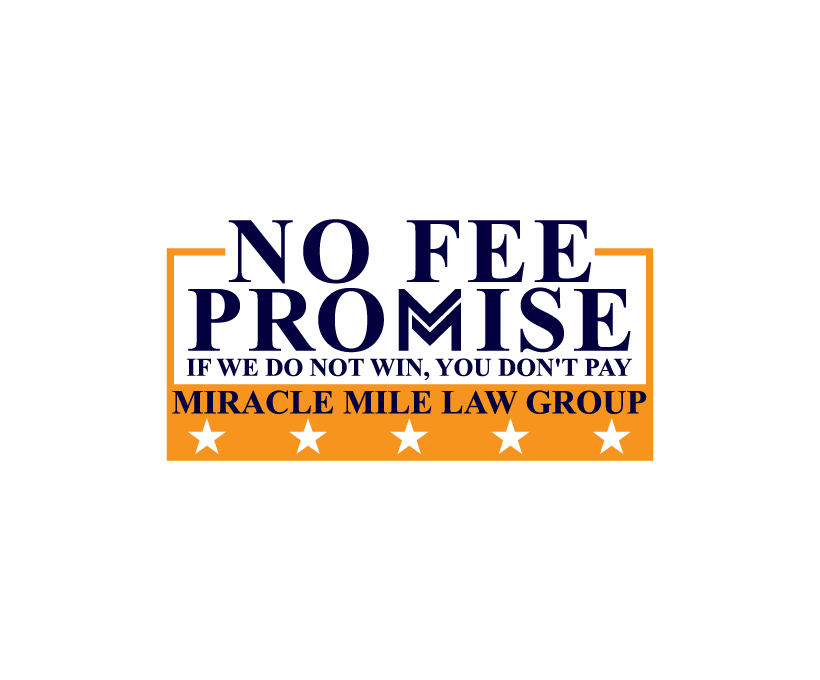Family & Medical Leave
Miracle Mile Law Group stands at the forefront of defending and guiding employees navigating the intricacies of Family & Medical Leave rights in California.

Overview of Family & Medical Leave Rights in California
California provides employees with some of the most expansive Family & Medical Leave rights in the country. The California Family Rights Act (CFRA) and the federal Family and Medical Leave Act (FMLA) are the primary laws in this domain. Together, they ensure that eligible employees can take unpaid, job-protected leave for specified family and medical reasons, without the threat of losing their job or benefits.
Key Aspects of Family & Medical Leave
- Eligibility: Typically, employees are eligible if they have worked for their employer for at least 12 months, and have clocked in over 1,250 hours during the previous 12 months, and work at a location where the company employs 50 or more employees within 75 miles.
- Duration: Eligible employees can take up to 12 workweeks of leave in a 12-month period for certain reasons like the birth of a child, to care for an immediate family member with a serious health condition, or if the employee themselves has a serious health condition.
- Protection: During the leave, employers must maintain the employee’s health coverage under any group health plan. Upon return from leave, employees must be restored to their original job or an equivalent job.
- Notice: Employees must provide their employers with reasonable advance notice if the need for leave is foreseeable.
Proving Family & Medical Leave Violations
Successfully establishing a Family & Medical Leave violation necessitates a methodical presentation of evidence and facts. Initially, an employee must confirm their eligibility for the leave by demonstrating their tenure, hours worked, and the size of the employing entity. Central to the claim is providing valid reasons for the leave, such as medical documentation for serious health conditions, birth or adoption certificates for new parents, or necessary paperwork in cases of family military leave. A clear record of communication is crucial: evidence of having informed the employer about the need for leave, whether through written requests, emails, or formal application forms. If the employer has provided a reason for denial or adverse action, scrutinizing its validity and comparing treatment with similarly situated colleagues can expose disparities and potential violations. Witnesses, including co-workers or medical professionals, can testify on the employee’s behalf to further strengthen the claim. It’s also beneficial to document any retaliatory or negative actions post-leave, such as demotion, unfavorable shifts, or harassment. Given the nuances of Family & Medical Leave laws, it’s invaluable to consult with experienced attorneys, like those at Miracle Mile Law Group, who can help navigate the complexities and optimize the chances of a favorable outcome.
Determining if you have a solid case for a Family & Medical Leave violation at work involves examining several key factors:
- Eligibility Criteria: Confirm that you meet the requisite criteria to qualify for Family & Medical Leave. This typically involves having worked for the employer for at least 12 months, accumulated over 1,250 hours of service in those 12 months, and working at a location where the employer has 50 or more employees within a 75-mile radius.
- Valid Reason for Leave: Ensure your reason for taking leave is covered under the Family & Medical Leave Act (FMLA) or the California Family Rights Act (CFRA). Common reasons include personal serious health conditions, caring for a family member with a serious health condition, childbirth, bonding with a new child, or certain military-related situations.
- Notification: Did you inform your employer about your need for leave in a timely manner? If your need for leave was foreseeable, you would generally need to give at least 30 days’ notice. If unforeseeable, you should inform them as soon as practicable.
- Employer’s Response: Assess how your employer responded to your request. Did they deny your valid request without a legitimate reason? Did they fail to maintain your benefits while you were on leave?
- Retaliation or Adverse Action: Upon returning from leave, were you restored to your original position or an equivalent one with the same pay, benefits, and other terms and conditions of employment? If you faced demotion, reduction in pay, or even termination upon return, these are red flags.
- Documentation: Maintain thorough records of all interactions with your employer concerning your leave. This includes emails, letters, medical certificates, and any other relevant communications.
- Comparative Treatment: It can be useful to know how other employees in similar situations were treated. Were they granted leave under similar circumstances, or did the employer treat you unfairly compared to others?
- Employer’s Explanation: Sometimes, an employer might provide an alternative reason for their actions. Scrutinizing this reason can help determine if it’s genuine or merely a pretext to cover up a violation.
- Legal Guidance: It’s paramount to consult with an attorney who specializes in employment law, like those at Miracle Mile Law Group. They can provide insights into the strengths and potential weaknesses of your case, ensuring that you fully understand your rights and the best course of action.
Remember, each case is unique, and the specific facts and circumstances surrounding your situation will be essential in determining whether you have a viable claim for a Family & Medical Leave violation.
Miracle Mile Law Group’s Services
If you believe your rights under Family & Medical Leave laws have been infringed, the experts at Miracle Mile Law Group can assist with:
- Case Assessment: Our seasoned attorneys will meticulously evaluate your situation, offering insights into your rights and potential remedies.
- Representation: We’re committed to ensuring that every employee’s rights are recognized and protected. We’ll passionately advocate for you, whether in settlement negotiations or in the courtroom.
- Guidance: Navigating the complexities of Family & Medical Leave laws can be challenging. Our team will guide you step by step, ensuring clarity and confidence.
Compensation & Remedies
Victims of Family & Medical Leave violations can often seek remedies like job reinstatement, back pay, compensation for lost benefits, and even damages for emotional distress.
When an employer in California breaches the rights afforded to employees under the Family & Medical Leave laws, affected employees may be entitled to various forms of compensation. Primarily, they can seek back pay for any lost wages and benefits that occurred due to the violation. This includes salaries, overtime, bonuses, and any other form of compensation they would have earned during the period of the violation. In addition to this, if an employer fails to maintain health insurance benefits during an employee’s leave, they may be held responsible for medical costs the employee incurred during that time. Employees might also be awarded front pay in scenarios where reinstatement is not feasible due to the workplace environment or other valid reasons. Emotional distress damages can be sought when the violation caused significant mental anguish or suffering. In instances where the employer’s violation is found to be willful or particularly egregious, punitive damages could be awarded as a deterrent against future violations. Finally, successful claimants may also recover attorneys’ fees and court costs. With California’s strong stance on protecting employee rights, it’s crucial for affected individuals to consult with legal professionals, like those at Miracle Mile Law Group, to ensure they receive the comprehensive compensation they’re entitled to.
Compensation & Remedies
Understanding Family & Medical Leave rights is pivotal for every working individual in California. If you have questions, concerns, or believe you’ve been wrongly treated, don’t hesitate to reach out to Miracle Mile Law Group. Our dedicated team is here to provide the expert assistance and advocacy you deserve.
The FMLA is a United States law that requires covered employers to provide employees with unpaid leave in which the employee’s job is protected for certain reasons including:
- Medical reasons
- Family reasons
- Pregnancy
- Pregnancy-related disabilities
- Adoption
- Bonding with a newborn child
- Foster care placement of a child
- Personal illness
- Taking care of an ill parents
- Family military leave
The FMLA allows an employee to take off up to 12 work weeks of unpaid leave during any 12-month period to attend to the situations listed above. However, the employee must have worked for the business for at least 12 months and worked at least 1,250 hours over the past 12 months. Also, the employer must have at least 50 employees
The CFRA is very similar to the FMLA, however there are some key differences between the two laws. The CFRA is more flexible in that only a minimum of 20 employees must have worked at the business during the time leave is requested. Also, under the CFRA, pregnancy related disabilities do not apply. Nonetheless, like the FMLA the eligible employee gets up to 12 weeks of unpaid leave within one year.
The Pregnancy Disability Leave (PDL) Act is a California law that covers employee leave pertaining to pregnancy-related disabilities. The PDL is even more flexible then the FMLA in that only 5 or more employees must have worked for the employer at the time of the leave for the employer to be covered. However, the PDL only covers pregnancy-related disabilities meaning the employee will not get time off for the birth of a child or placement of a child in foster care or adoption.
- Family and Medical Leave Act (FMLA): 12 weeks within one year of when the employee requests time off for a protected activityCalifornia Family Rights Act (CFRA): 12 weeks within one year of when the employee requests time off for a protected activityPregnancy Disability Leave (PDL): 4 months based on hours worked per week
-
- Family and Medical Leave Act (FMLA): YESCalifornia Family Rights Act (CFRA): YESPregnancy Disability Leave (PDL): YES
- Family and Medical Leave Act (FMLA): YesCalifornia Family Rights Act (CFRA): Maybe. If the spouse, child, or elderly parent of the employee has a serious health condition then he or she may be entitled to intermittent leave.Pregnancy Disability Leave (PDL): No. The employee can take bonding leave in separate two-week blocks, so long as it is within one year of birth.
- Family and Medical Leave Act (FMLA): You must be reinstated to your same position or comparable job notwithstanding layoffs, etc. Otherwise, if you were terminated, you may have a cause of action for wrongful termination.California Family Rights Act (CFRA): You must be reinstated to your same position or comparable job notwithstanding layoffs, etc. Otherwise, if you were terminated, you may have a cause of action for wrongful termination.Pregnancy Disability Leave (PDL): You must be reinstated to your same position or comparable job notwithstanding layoffs, etc. Otherwise, if you were terminated, you may have a cause of action for wrongful termination
-
- Under the FMLA, CFRA, and PDL your employer is required to reinstate you to a job that is comparable to your previous job. Nonetheless, the term “comparable position” is construed narrowly and means that your employer must give you a job that is virtually identical to your previous job in terms of pay, duties, benefits, working conditions, and status. As far as location goes, you should be placed at the same site or a geographically close worksite from where you worked previously.When Can You Take Leave in California? – A Yes/No Test:
- Leave taken for bonding with a new baby? Yes
- Leave to take care of a sick family member? Yes
- Leave for a parent or guardian of a student to appear at school because of issues involving the student’s academics? Yes
- Leave for employees to voluntarily complete drug or rehabilitation? Yes
- Leave for an employee to watch their child’s baseball game? NO
- Leave for military spouses while a spouse is home from deployment? Yes
- Leave for employees to care for a domestic partner’s serious health condition? Yes
- Leave for employees who are donating an organ or bone marrow? Yes
- Leave for employees to vote in statewide elections? Yes
- Leave for employees to volunteer as firefighters, reserve peace officers, or emergency rescue personnel? Yes
- Leave for employees who are victims of domestic violence, sexual assault and/or stalking? Yes
- Leave for employees who are in jail for theft? NO
For a more detailed discussion, click here.
- Under the FMLA, CFRA, and PDL your employer is required to reinstate you to a job that is comparable to your previous job. Nonetheless, the term “comparable position” is construed narrowly and means that your employer must give you a job that is virtually identical to your previous job in terms of pay, duties, benefits, working conditions, and status. As far as location goes, you should be placed at the same site or a geographically close worksite from where you worked previously.When Can You Take Leave in California? – A Yes/No Test:
-
- If you’re wondering whether you might have a lawsuit for violation of your rights under the FMLA, CFRA and/or PDL, ask yourself the following:
- Were you fired while you were on protected leave through the Family and Medical Leave Act (FMLA), the California Family Rights Act (CFRA), or the Pregnancy Disability Leave (PDL) Act?
- Were you denied leave under the Family and Medical Leave Act (FMLA), the California Family Rights Act (CFRA), or the Pregnancy Disability Leave (PDL) Act?
- If you’re wondering whether you might have a lawsuit for violation of your rights under the FMLA, CFRA and/or PDL, ask yourself the following:
- $106,000: After returning from leave to tend to a premature birth an employee was fired. She gave her employer ample warning of her plan to take a leave of absence. She was later awarded $106,000 in damages and attorney’s fees. See Rodriguez v. Xiaobo America, Ltd.
- $200,000: After going through an extremely tough family situation along with juggling the pressures of her job, a human resources director requested leave under the FMLA on a Sunday. Subsequently, on Monday she went to the doctor to get treated for the stress she was facing and was fired that same day. The Court found that her employer interfered with her right to leave AND retaliated against her for it, leading to double damages. The plaintiff in this case was awarded almost $200,000 in attorney fees. See LaMonaca v. Tread Corp.
- $740,000: An employee who worked for his company for over 18 years was had 3 neck surgeries due to back problems. After the employee took his rightful amount of FMLA leave he was pressured to change his shifts so that his employer would not have to pay overtime to other employees to make up for his absence. Also, he was subsequently given poor performance reviews because of his leave. He was later fired an alleged safety issue. The jury in this case sympathized with the employee and he was awarded $740,535 for his lost wages and benefits




